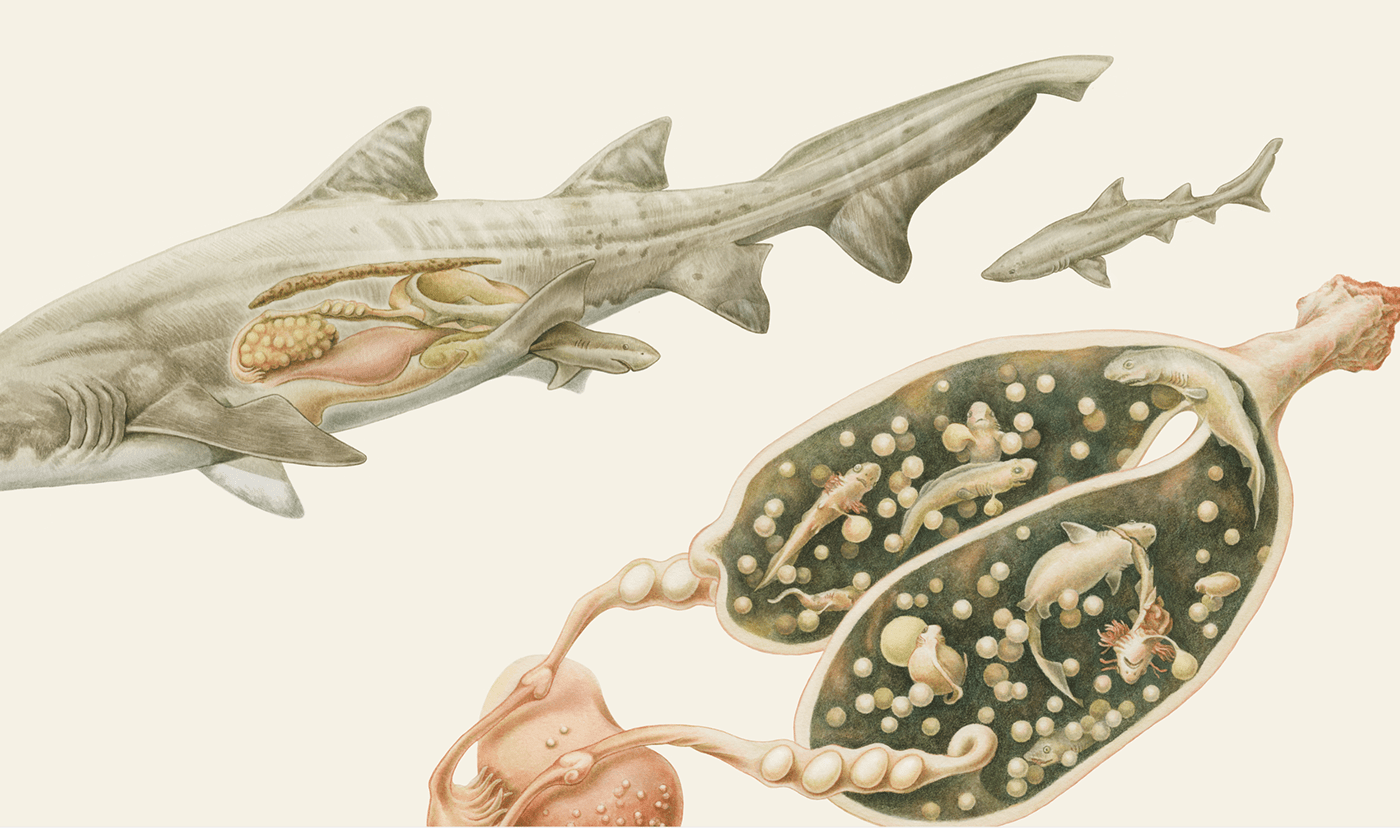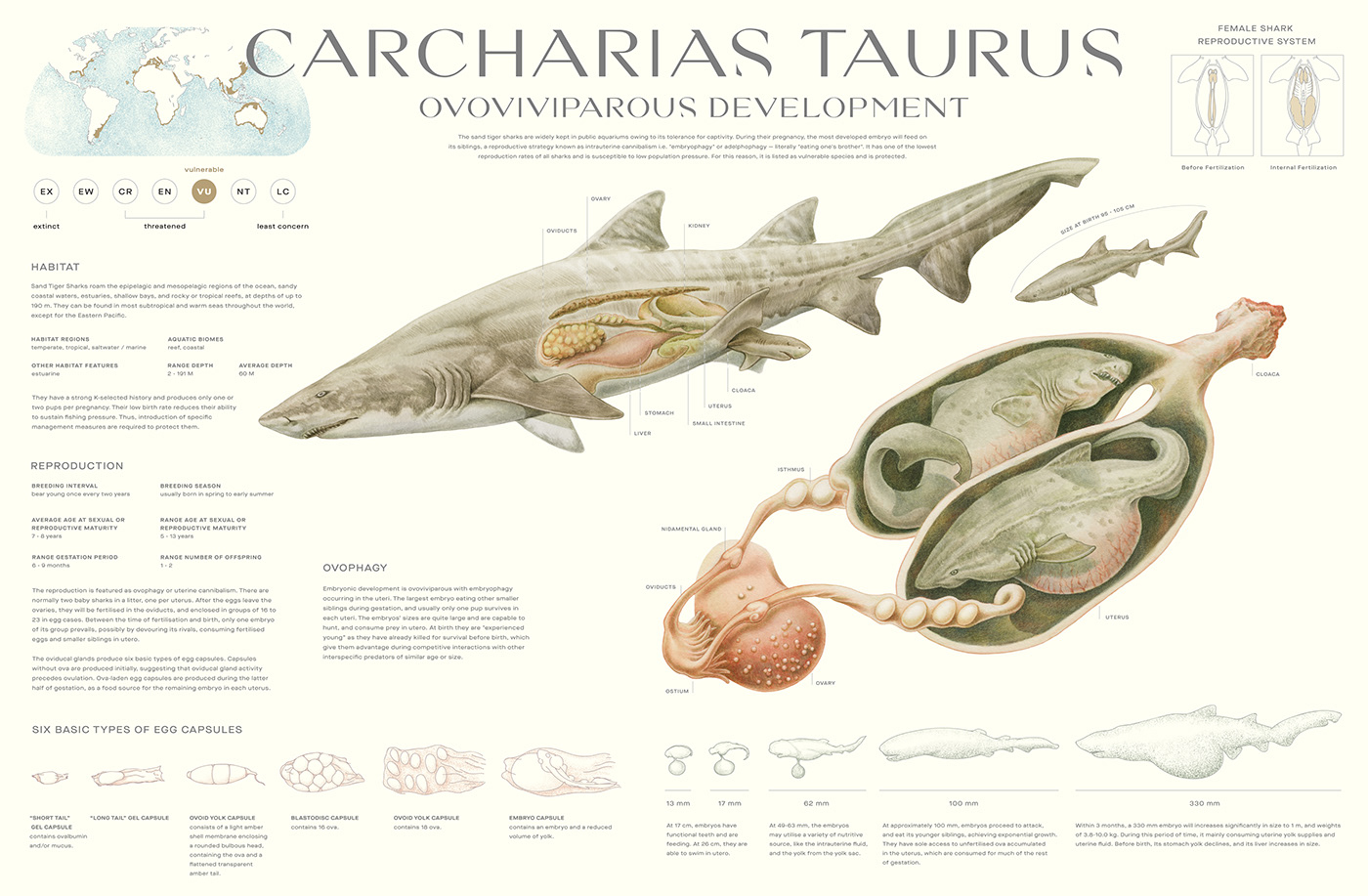
Sand Tiger Shark Ovophagy
The sand tiger sharks are widely kept in public aquariums owing to its tolerance for captivity. During their pregnancy, the most developed embryo will feed on its siblings, a reproductive strategy known as intrauterine cannibalism i.e. "embryophagy" or adelphophagy — literally "eating one's brother". It has one of the lowest reproduction rates of all sharks and is susceptible to low population pressure. For this reason, it is listed as vulnerable species and is protected.
The A1 infographic poster illustrates the process of Ovoviviparous Development, in order to raise people’s curiosity and understanding towards this shark species, from exposing their esoteric nature of their reproduction.







References
Tomita T, Murakumo K, Ueda K, Ashida H, Furuyama R. Locomotion is not a privilege after birth: Ultrasound images of viviparous shark embryos swimming from one uterus to the other. Ethology. 2018.
Gilmore, R. G., Dodrill, J. W., & Linley, P. A. (1983). Reproduction and embryonic development of the sand tiger shark, Odontaspis taurus (Rafinesque). Fishery Bulletin, 8(2), 201‐225.
Gilmore, R. G. (1993). Reproductive biology of lamnoid sharks. Environmental Biology of Fishes, 38(1‐3), 95‐114. doi:10.1007/BF00842907








